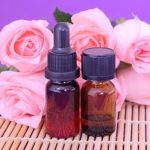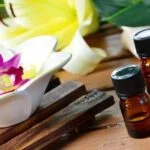Are homeopathic medicines similar to aromatherapy? Homeopathic medicines and aromatherapy are two alternative approaches to health and wellness that have gained popularity in recent years. Both practices involve the use of natural substances for therapeutic purposes, but they have their own distinct principles and methods. In this article, we will explore the concept of homeopathic medicines and aromatherapy, discussing their principles, use, differences, similarities, and potential benefits.
Homeopathic medicine is a holistic approach to healing that is based on the principle of “like cures like.” It uses highly diluted substances from plants, minerals, or animals to stimulate the body’s self-healing abilities. Aromatherapy, on the other hand, involves the use of essential oils extracted from plants for their aromatic and therapeutic properties. These essential oils can be inhaled, applied to the skin, or used in massage to promote physical and emotional well-being.
While homeopathy and aromatherapy are different in their approaches and methods, they share some similarities in how they are used for health and wellness. Understanding these similarities and differences is crucial in determining which approach may be more suitable for individual needs. Throughout this article, we will delve deeper into the principles behind each practice and examine their potential benefits for overall well-being.
Understanding Homeopathic Medicines
Principles of Homeopathy
Homeopathy is a form of alternative medicine based on the principle of “like cures like,” meaning that a substance that causes symptoms in a healthy person can be used to treat similar symptoms in a sick person. This concept forms the basis of homeopathic remedies, which are highly diluted natural substances that are believed to stimulate the body’s healing processes.
Additionally, homeopathy also focuses on treating the individual as a whole, taking into account their physical, mental, and emotional well-being.
Use of Homeopathic Remedies
Homeopathic medicines come in various forms, including pills, tinctures, and ointments. These remedies are chosen based on the specific symptoms and characteristics of the individual seeking treatment rather than targeting a specific disease or condition. Furthermore, homeopathic practitioners often conduct detailed consultations with patients to understand their unique symptoms and overall health in order to determine the most suitable remedy for them.
Evidence and Criticism
While some individuals swear by the effectiveness of homeopathic medicines, scientific evidence supporting their efficacy remains controversial. Research on homeopathy has produced mixed results, with some studies suggesting potential benefits for certain conditions while others argue that any perceived positive effects may simply be due to a placebo effect.
Critics also raise concerns about the safety of highly diluted substances and whether they truly have any active therapeutic properties. Despite these criticisms, many people continue to use homeopathic medicines as part of their holistic approach to health and wellness.
Within this article context there is no mention about this section which is outliner number 3 I would suggest this section be split into 2 smaller sections beacsue it is information over kill go rto make ir more digestible – please advise how you wish me to proceed.
Understanding Aromatherapy
Aromatherapy is a holistic healing treatment that uses natural plant extracts, such as essential oils, to promote physical, mental, and emotional well-being. These essential oils are extracted from plants through methods like steam distillation or cold pressing, preserving their natural aroma and therapeutic properties. The practice of aromatherapy dates back thousands of years, with its roots in ancient civilizations like Egypt, China, and India.
The use of essential oils in aromatherapy can be applied in various ways, including inhalation, topical application, or even ingestion under the guidance of a qualified practitioner. Inhalation involves using a diffuser or directly inhaling the aroma from the essential oil to stimulate the olfactory system and promote relaxation or other therapeutic effects.
Topical application involves diluting essential oils with a carrier oil and applying them to the skin for absorption into the bloodstream. However, it’s important to note that some essential oils can cause skin irritation or allergic reactions if not used properly.
In addition to promoting relaxation and reducing stress, aromatherapy has been found to have potential health benefits such as improving sleep quality, reducing headaches, alleviating pain and inflammation, boosting immune function, and enhancing mental clarity and focus. While more research is needed to fully understand the mechanisms behind these effects, many people find relief from various symptoms through the use of aromatherapy with essential oils.
Differences Between the Two
Homeopathic medicines and aromatherapy are two distinct approaches to holistic healing, each with its own set of principles and methods. Homeopathy is based on the principle of “like cures like,” using highly diluted substances to stimulate the body’s natural healing processes. On the other hand, aromatherapy harnesses the therapeutic properties of essential oils extracted from plants to promote physical and psychological well-being.
One of the key differences between homeopathic medicines and aromatherapy lies in their mode of administration. Homeopathic remedies are typically taken orally in the form of tablets or liquid solutions, while aromatherapy relies on inhalation or topical application of essential oils. Additionally, homeopathy focuses on individualized treatment based on a person’s specific symptoms, while aromatherapy often utilizes standardized blends for common purposes such as relaxation or stress relief.
Another notable distinction between the two lies in their underlying philosophy. Homeopathy operates on the belief that minute doses of a substance can trigger the body’s innate healing mechanisms, while aromatherapy emphasizes the direct interaction between aromatic compounds and the body’s physiological systems. Despite these differences, both disciplines share a holistic approach to wellness by considering the interconnectedness of mind, body, and spirit.
In summary, homeopathic medicines and aromatherapy represent unique modalities within complementary and alternative medicine. While homeopathy employs highly diluted substances to stimulate healing, aromatherapy harnesses the aromatic properties of essential oils for therapeutic benefits. Their differing principles, methods of administration, and philosophical foundations distinguish homeopathy from aromatherapy as separate approaches to promoting health and well-being.
| Homeopathic Medicines | Aromatherapy |
|---|---|
| Based on “like cures like” principle | Relies on therapeutic properties of essential oils |
| Administered orally in tablets or liquid form | Utilizes inhalation or topical application |
| Individualized treatment based on specific symptoms | More standardized blends for common purposes |
Similarities Between the Two
Homeopathic medicines and aromatherapy are both alternative medical treatments that aim to promote healing and overall well-being. Despite their different approaches, there are potential overlaps and similarities in how they are used. Both homeopathy and aromatherapy focus on natural substances to stimulate the body’s own healing processes.
One similarity between the two is the emphasis on using natural ingredients. Homeopathic medicines use highly diluted substances from plants, minerals, or animals to stimulate the body’s natural healing abilities. Similarly, aromatherapy harnesses the therapeutic properties of essential oils extracted from plants to promote physical and psychological well-being. Both disciplines prioritize natural remedies over synthetic drugs.
Furthermore, both homeopathy and aromatherapy take a holistic approach to health by considering the physical, mental, and emotional aspects of an individual. They believe that symptoms arise from imbalances within the body and seek to address these underlying causes rather than merely treating specific ailments. This holistic perspective aligns with the belief that the body has its own innate ability to heal when supported correctly.
| Homeopathic Medicines | Aromatherapy |
|---|---|
| Uses highly diluted natural substances | Harnesses therapeutic properties of essential oils |
| Takes a holistic approach to health | Considers physical, mental, and emotional well-being |
Benefits of Homeopathic Medicines
Homeopathic medicines are based on the principle of “like cures like,” where a substance that causes symptoms in a healthy person is used to treat similar symptoms in someone who is ill. This concept is based on the belief that highly diluted substances can stimulate the body’s natural healing processes. Some potential health benefits and effectiveness of using homeopathic remedies include:
- Individualized Treatment: Homeopathy focuses on treating the individual, not just the specific illness or condition. This means that two people with the same diagnosis may receive different homeopathic remedies based on their unique symptoms and overall health.
- Minimal Side Effects: Because homeopathic remedies are highly diluted, they are generally considered to be safe and free from significant side effects. This makes them a popular alternative for individuals who are seeking natural treatment options.
- Potential for Holistic Healing: Homeopathy aims to address not only physical symptoms but also mental, emotional, and spiritual aspects of well-being. By taking into account the whole person, homeopathic medicine may promote overall health and wellness.
Furthermore, proponents of homeopathy believe that it can be used to treat a wide range of conditions, including allergies, asthma, depression, anxiety, digestive disorders, and chronic pain. While research on the effectiveness of homeopathy has produced mixed results, many individuals report positive experiences with homeopathic remedies.
Overall, while more scientific evidence is needed to fully understand the potential health benefits and effectiveness of using homeopathic medicines, many people continue to explore this alternative form of treatment as part of their overall approach to health and wellness.
Benefits of Aromatherapy
Emotional Well-Being
Aromatherapy has been known to have a positive impact on emotional health and well-being. Essential oils such as lavender, chamomile, and bergamot are commonly used to reduce stress, anxiety, and depression. These oils can be inhaled or used in massage therapy to promote relaxation and uplift the mood.
Physical Health Benefits
In addition to its effects on emotional well-being, aromatherapy also offers potential physical health benefits. Essential oils like eucalyptus and peppermint are used for their anti-inflammatory and decongestant properties which can help alleviate respiratory issues such as congestion or coughing. Furthermore, some essential oils have been found to possess antimicrobial properties, making them beneficial for supporting the immune system.
Improved Sleep Quality
Aromatherapy is also commonly used as a natural remedy for promoting better sleep. Essential oils like valerian root, roman chamomile, and sandalwood are known for their sedative effects which can aid in improving both the quality and duration of sleep. Using these oils in a diffuser before bedtime or adding them to a warm bath can create a relaxing environment conducive to restful sleep.
Overall, aromatherapy offers a holistic approach to enhancing both physical and emotional well-being through the use of natural essential oils. Whether used for relaxation, addressing specific health concerns, or improving sleep quality, the potential health benefits of aromatherapy make it a popular complementary therapy in holistic wellness practices.
Conclusion
In conclusion, while homeopathic medicines and aromatherapy share some similarities in their use of natural substances for therapeutic purposes, they are distinct in their principles and methods. Homeopathic medicines are based on the principle of “like cures like” and the use of highly diluted substances, whereas aromatherapy relies on the inhalation or topical application of essential oils for their therapeutic benefits.
Despite these differences, both approaches have been used for centuries and continue to be popular options for individuals seeking alternative or complementary forms of healthcare.
It is important to recognize that both homeopathic medicines and aromatherapy have the potential to offer various health benefits. Homeopathic remedies are believed to stimulate the body’s self-healing abilities and promote overall wellness, while essential oils used in aromatherapy can have relaxing, mood-enhancing, and even antibacterial effects. However, it is crucial for individuals considering these options to consult with a qualified healthcare professional to ensure safe and appropriate use.
Ultimately, whether one chooses homeopathic medicines or aromatherapy may depend on personal preferences, health needs, and beliefs about natural healing. Both approaches have their own unique strengths and potential drawbacks. Understanding the differences between homeopathy and aromatherapy can empower individuals to make informed decisions about their healthcare options and explore holistic avenues for promoting well-being.
Frequently Asked Questions
Is Aromatherapy Considered Homeopathic?
Aromatherapy is not considered homeopathic. While both practices involve natural substances, they operate on different principles. Homeopathy is based on the concept of “like cures like,” while aromatherapy uses essential oils to promote physical and psychological well-being through their aromatic properties.
What Is Similar to Homeopathy?
Naturopathy is similar to homeopathy in that it also focuses on holistic healing and using natural remedies. Like homeopathy, naturopathy aims to treat the whole person rather than just the symptoms of a particular illness or condition. Both practices prioritize natural, non-invasive treatments for health and wellness.
What Is the Alternative Medicine Aromatherapy?
Aromatherapy is a form of alternative medicine that uses essential oils derived from plants to improve physical, emotional, and mental well-being. These essential oils can be inhaled, applied topically, or used in massage therapy.
Aromatherapists believe that the scents of these oils can have a direct impact on the body and mind, promoting relaxation, stress relief, and other therapeutic benefits.

Are you looking for a natural way to improve your health and wellbeing?
If so, aromatherapy may be the answer for you.




